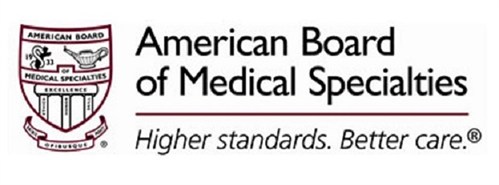
I think I just took my Family Medicine Board Certification test for the last time. They didn’t kick me out for my lousy scores, its just things are changing.
Most people (patients) aren’t aware of the hoops and hurdles of medical education. Most MD’s have a four-year undergraduate degree (Bachelors), then complete four years of medical school (where they receive their MD degree). But that’s just a piece of paper you hang on the office wall.
To legally practice medicine in any state you need a license, granted by the Board of Medicine in that state. The Board of Medicine in Idaho is given the power by the Idaho legislature (thus, the people) to grant or remove licenses by statute (Title 54, Chapter 18).
Each state sets its own requirements for Medical licensure and each state enforces this professional monopoly, through the laws enacted by the legislature.
Most states require US MD graduates have some practical training after medical school, called “residency” to get their state license. You’ve watched Greys Anatomy. I hated that show. Idaho requires US medical school graduates have 1 year of residency training, Washington 2, Nevada 3. But no state requires board certification as a standard for licensure.
So, what the heck is “Board Certification”? It’s another hoop. After you’ve done all those college hoops, National Board exam hurdles, residency requirement hours and hurdles, then, the specialty you choose to join has some more for you.
Since I decided to be a family doctor I thought I should be “Board Certified” in family medicine. I paid the fee ($1850) and took the test. It was a relief to pass, but then when I saw 95% passed I didn’t feel so special. The day long test came up every 7 years for me. I was also required to complete annual self-training requirements to maintain the certification.
Who cares about Board Certification? Not patients; most folks who walk through our office can’t tell an MD from a DO from an NP from a PA. Most pay attention to the practitioner’s demeanor. Still, when polled, 70% of the public will answer “yes” to the question “Is Board Certification an important criterion for choosing a doctor?” Seems a pretty leading question to me.
Board Certification has been used by some hospitals and health care networks to determine who can be employed or work in their facilities.
Insurance companies have used Board Certification status to adjust payment schedules.
Does it matter that 90% of practicing MDs in the US have some sort of board certification?
Since so many of my practicing colleagues have jumped through this hoop, paid the fees, submitted education credits and taken the tests, (and passed) you would think they all agree on the value of making it through the hoop. But for the last ten years there has been grumbling. Many physicians object to the silliness of the day-long multiple-choice test, where a full third of the questions have been shown to have no relevance to current practice. But most point to the lack of evidence for value. There has never been any correlation between performance on certification and clinical quality, even when studied by the national boards themselves.
Such grumbling might be a sign of change. I hope so. A profession questioning its own methods is healthy reflection. Maybe some resolve will come out of it.
From now on, the Family Medicine Boards will offer the old fashioned every 7-10-year day-long test or a quarterly open book test. In addition, I will need to show regular self-education and self-improvement activities. I’ll do my best, but honestly, hoops, at my age, with these knees?
Instead of the national certification, I would hope my patients, my colleagues would respectfully let me know when I mess up and offer me guidance when I stray. Such cultures, such comrades would do more to promote excellence than thousands of hours of tests. I’ll do my best to be part of that change.
